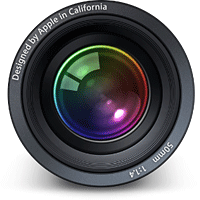Adobe courts Aperture castaways with import plugin, free training offer
posted Monday, October 20, 2014 at 12:09 PM EST

Last June, we reported on the demise of Apple's flagship imaging app, Aperture, which is no longer being actively developed. Apple's decision to abandon Aperture left photographers with a choice: Stay with the app and continue to expend energy on an increasingly obsolete database format, or make the jump to a rival product from the likes of Adobe, Corel or Phase One at the earliest opportunity.
The problem with making that jump was that of taking your existing catalog with you. Each app has its own proprietary database structure, and none was designed to ease the transition from a competing product. It didn't take long for a third-party app to appear providing a path from Aperture to its main rival, Adobe Photoshop Lightroom, however. (In fact, it only took an impressively-swift three weeks.)
If you wanted a first-party solution, though, the best Adobe had to offer prospective customers was a complex six-page guide -- until now, that is. Late last week, the company debuted its own custom plug-in designed to import as much as possible from your Aperture catalog into Lightroom. Adobe's tool will retain all of the following metadata:
-
Flags
-
Star Ratings
-
Keywords
-
GPS Data
-
Faces (face naming tags are mapped to keywords)
-
Rejects (files designated as Rejects in Aperture will be imported into Collections > From Aperture > Photos Rejected in Aperture)
-
Hidden Files (files designated as Hidden in iPhoto will be imported into Collections > From iPhoto > Photos Hidden in iPhoto)
-
Color Labels (Aperture Only – Color Labels are mapped to keywords: Red, Orange, etc…, including support for custom label names)
-
Stacking (Aperture Only – Stacks information is mapped to keywords: Aperture Stack 1, Aperture Stack 2, etc…)
-
Aperture project/folder/album hierarchy will be mapped as closely as possible into Lightroom collection sets and collections
-
iPhoto events/folders/albums will be mapped as closely as possible into Lightroom collection sets and collections
-
Import ‘Full size’ previews from Aperture/iPhoto (optional, off by default), provided that they are up-to-date
-
Aperture ‘Versions’ will translate into Virtual Copies in Lightroom (without adjustments)
-
Metadata that can be entered in the ‘Info’ panel in Aperture
A few things are lost in the transition, but they're quite understandable:
-
Image adjustments
-
Smart Albums
-
Face Tag Region of Interest (face naming tags are mapped to keywords)
-
Color Labels (other than optionally as keywords)
-
Stacks (other than optionally as keywords)
-
Any kind of creation (books, web galleries, etc) other than the collections that correspond to them
The new tool removes one major stumbling block from the path of those looking to transition to Lightroom, but there's still the hassle of learning an entirely new app and workflow. Adobe has an answer for that problem, too, and just like the importer plug-in it can be obtained free of charge -- but this time with some provisos.
A raft of helpful content including step-by-step tutorials, training videos and more is available from the folks at KelbyOne, and now through November 28th, Adobe is providing customers with a three-month KelbyOne membership free of charge, but only if you opt to subscribe to the Creative Cloud Photography plan at a cost of US$10 per month. Customers who prefer to purchase their software rather than rent it will have to separately pay for a KelbyOne subscription if they want to access this tutorial content.
If you're an Aperture user looking to make the jump, though, it seems the time to move to Photoshop Lightroom is now. Whether or not your software purchase preferences mean that you're able to take advantage of the free training offer, your Aperture catalog is only getting older, and the job of transitioning it will not get any easier.
Find out more about the new importer and free training offer on Adobe's website, and on its Lightroom Journal blog. The latter also has information on how to install the catalog import plug-in, which is available free of charge to both Creative Cloud and standalone Lightroom customers.